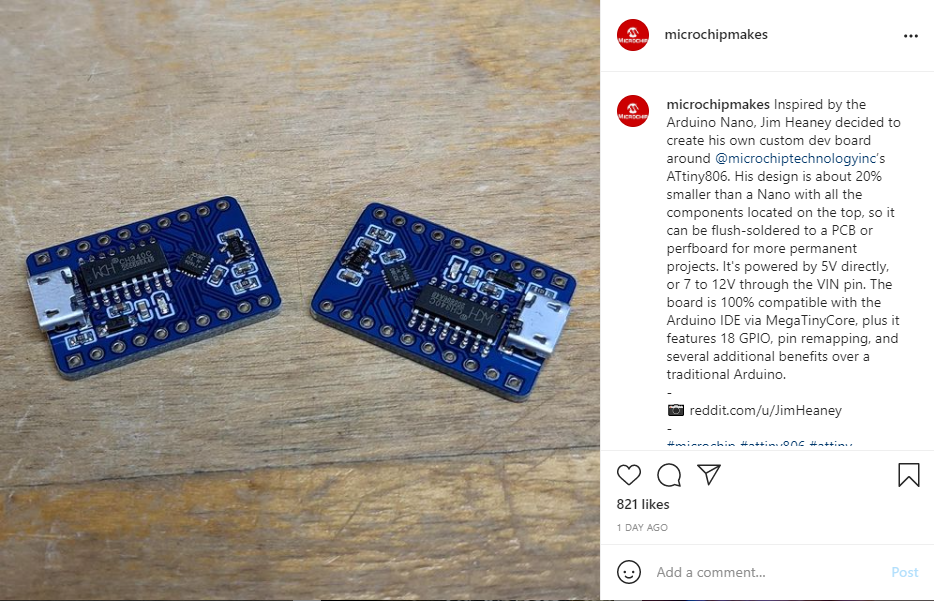Summary
The Arduino Nano is one of my favorite microcontrollers, so I decided to make my own small microcontroller; the Tinyduino!
The Tinyduino is about 20% smaller than a regular Arduino Nano, and all the components are on the top side, so it can be flush-soldered to a PCB or perfboard for more permanent projects. It can be powered by 5 volts directly, or 7 to 12 volts through the VIN pin.
Like a regular Arduino, you can just plug the board into your computer to upload code. The AtTiny 806 microcontroller is 100% compatible with Arduino code thanks to the awesome MegaTinyCore, and it offers a ton of additional benefits over a traditional Arduino:
The Tinyduino is about 20% smaller than a regular Arduino Nano, and all the components are on the top side, so it can be flush-soldered to a PCB or perfboard for more permanent projects. It can be powered by 5 volts directly, or 7 to 12 volts through the VIN pin.
Like a regular Arduino, you can just plug the board into your computer to upload code. The AtTiny 806 microcontroller is 100% compatible with Arduino code thanks to the awesome MegaTinyCore, and it offers a ton of additional benefits over a traditional Arduino:
- 18 GPIO, 12 of which are analog inputs, and 6 of which are PWM
- Onboard LED for debugging on Pin #0
- 25% faster clock speeds, up to 20MHz.
- Pin remapping; Ever wish the i2C or SPI pins were in a different spot? Well now they can be! The 806 supports repositioning of the SPI, i2C, and UART pins.
- Multiple Internal References; The 806 has multiple different voltages that can be referenced as internal analog pins.
- Hardware Comparator; The 806 includes an analog comparator, that can be used to fire an interrupt, wake the microcontroller, or set an I/O to be high or low.
- Fast I/O; MegaTinyCore supports digitalWriteFast and digitalReadFast, which greatly increase the speed of IO for time-sensitive applications.
- All pins can be used as an interrupt in any form, or to wake the microcontroller.
- Programmable ADC resolution and speed
- Software-defined clock speeds, down to 1MHz for ultra low-power operation.
- Digital to Analog Conversion; output a programmable voltage on pins.
- More RAM, program memory, and EEPROM
- Multiple timers running concurrently
- Overclocking up to 30MHz
See more on my GitHub! Link Here.
